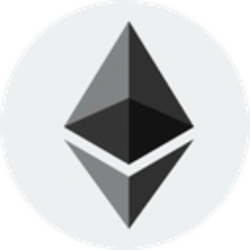 The Graph
The Graph 3.11%0.0008(24h)
3.11%0.0008(24h)1H

7D

30D

60D

90D

Low:-
High:-
1H

7D

30D

60D

90D



Live Token Dashboard & Analytics
Track this token’s real-time pricing, market indicators, supply metrics, exchange activity, and technical analysis insights. The dashboard presents accurate market dynamics to help evaluate performance. If the data is inaccurate, Report to us



 0xc944...da44a7
0xc944...da44a7 Market Cap
Market Cap

N/A
N/A
N/A
N/A
The live price of The Graph is at 0.0265 with 24 hours volume of 26,615,943.00. The chart above shows is currently by -0.22% in the past hour and 3.11% by since yesterday. The total circulating supply of The Graph token is 10,729,549,592.47
Over the last 24 hours, The Graph token experienced trading activity amounting to 26,615,943.00. The decentralized exchange (DEX) volume accounted for 0.020, while centralized exchanges (CEX) stood at 26,615,943.00.
The Graph (GRT) token reached an all-time high of 2.88 on and an all-time low of 0.0231 on .
Dropping -99.08% from its ATH is a significant retracement, yet a rise of 14.49% from its ATL projects robust recovery.

Sell
Neutral
Buy

Sell
Neutral
Buy

Sell
Neutral
Buy



Please wait data is Loading...
Pairs | Trust Score | |||
|---|---|---|---|---|
The Graph(GRT) is a layer-2 decentralized and distributed protocol built on the Ethereum Network that helps efficiently, in indexing and querying blockchain information. The Graph enhances the ease of development of Dapps as it gives efficient ways to obtain, manage, and present information stored in the blockchain. Owing to The Graph, developers can build applications more rapidly and dependably than a sophisticated processing system of data is needed.
The Protocol tackles the challenge of accessing information from blockchains like Ethereum to get the desired level of detail and specificity.
In most cases, especially where traditional systems are involved, retrieving information can be an easy process; however, this is not the case when working with data from a blockchain. The Graph goes around this challenge by introducing subgraphs, which are specialized application programming interfaces (APIs) that scrape and structure blockchain data for easy access with a standard GraphQL API.
What sets the Graph apart is that it is built in a decentralized manner. Because of the use of subgraphs, developers do not need to create any dedicated servers, databases, or APIs as data indexing and querying will happen with much ease. This means that the retrieval of information will be much quicker while ensuring the principles of security, transparency, and decentralization that are characteristic of blockchain-powered systems are upheld.
The Graph was established in 2018 by its three co-founders, Yaniv Tal, Jannis Pohlmann, and Brandon Ramirez. From its inception, it has evolved into a robust protocol that is sustaining vast numbers of projects and developers.
GRT token is the native utility token of The Graph protocol, used for various functions such as:
DeFi Solutions: GRT enables data indexing for DeFi platforms such as Uniswap, which permits the live monitoring of liquidity, token swaps, and other trading information.
NFT Services: It indexes data about NFTs, so that services including Bored Ape Yacht Club can render data about the assets in no time.
Data Aggregation & Analysis: GRT collates information across various blockchains to facilitate reporting, research and business intelligence.
Building dApp: DApp's Development is made easier by the extensive database of on-chain data where one does not have to put up a complex backend structure.
Yaniv Tal, Tegan Kline, Jannis Pohlmann, and Brandon Ramirez formed the Graph in July 2017 propelled by the need to find data tools for Ethereum. Their goal was to create an efficient, scalable, and most importantly an open source ecosystem for the development of dApps with generic APIs to access blockchain data.
The protocol began in 2018 when it was introduced as a hosted service capable of supporting Ethereum dApps. In August of the same year, The Graph decided to open-source its node infrastructure marking the first step to achieving its vision of a less centralized future.
In the year 2020, The Graph grew with several important initiatives:
Incentivized Testnet & Curators Program: Launched in mid-2020 enabling external parties to operate indexer nodes and curate the content.
The Graph Foundation & Council: Formed in October 2020 to manage the expansion and governance of the ecosystem as a network.
Mainnet Launch: On December 17, 2020: The Graph was launched on the mainnet and commenced the transition to a decentralized subgraph marketplace.
The transition of the protocol from hosted services to a decentralized network at that time was split into several statements with a structured three subdivided phases – migration plan.
First Phase (Sunray): was launched in December 2023, in support of the subgraph for all hosted chains.
Second Phase (Sunbeam): Ongoing by April 2024, involves and constrains the developers to move their subgraphs to the network that is decentralized.
Third Phase (Sunrise): Complete rollback of the hosted service with only the deployment of the network that is decentralized remaining.
The Graph has continued to innovate, launching tools like Subgraph Radio, and announcing projects such as Graph Horizon, that enhance protocol productivity. Up to this date in April 2024, The Graph avails its hosted network services for more than 30 networks and its decentralized services for eight networks, with plans to scale up using Arbitrum One to cut down on transaction costs.
The Graph enables decentralized data indexing and querying through a network of Indexers, Curators, Delegators, and Developers all secured by the use of Graph Tokens (GRT):
Indexers: Node operators who stake GRT for indexing the network and providing query services. They charge fees and receive rewards depending on their performance level and the amount of GRT staked. They serve subgraphs in order of curation signals received from the Curators.
Curators: Figure out the value of certain subgraphs, and stake GRT to do that thus showing what indexes need to be made by the Indexers. They receive a cut from the revenue generated from the queries performed on the subgraphs they have staked on.
To promote economic security and ensure the preservation of the data, the participants in the market are required to stake the GRT token, which is an ERC-20 token meant for utility purposes within the ecosystem and helps in the allocation of resources within the network. Earnings for Indexers, Curators, and Delegates are in proportion to GRT stake and the amount of work done by the participants, which motivates them to provide quality services and store correctly indexed data.
Launch Date: The Graph’s mainnet went live on December 17, 2020. The GRT, which is an ERC-20 token, serves as the utility token of the network where users can stake and make payments.
Distribution and Launch: The graph raised a0 million during its token sale held in June 2020 with several well-known organizations such as Framework Ventures, Coinbase Ventures, Digital Currency Group, Multicoin Capital, etc. participating in the sales. Further, The Graph went ahead and held a public sale going through GRT tokens for 12 million dollars in October 2020. Further, The Graph Foundation also known as The operat9esqtsq9rt was founded in October 2020, having France-based Eva Beylin as its director, is the authority looking over the protocol now.
Initial Price & Market Adoption: The public sale held in October 2020 contributed to the initial marketing of GRT. Gradually, GRT experienced a growing demand since its implementation to serve as an underlying feature in relation to open source smart contracts based on duct data, essential to the Web3 Framework.
Circulating Supply: The current circulating supply of GRT stands at around 9.5 billion tokens.
Price History: Graph (GRT) All-time high of $2.84 occurred in February 2021 and an all-time low of $0.05 in December 2022.
As of 2024, the GRT token can be found on more than 30 different exchange platforms. There are more than 30 centralized exchanges (CEX) and some decentralized (DEX) exchanges that provide a variety of trading pairs.
CEX Platforms: Prominent exchanges on central exchanges include Binance, Coinbase exchange, Kraken, KuCoin, OKX, Bitfinex, Huobi, and CEX.IO.
DEX Platforms: Some well-known decentralized exchanges (DEXs) include Uniswap, Balancer, PancakeSwap, and other DeFi platforms liquidity provide GRT pairs.
Available in US markets: Apart from these additional exchanges are Binance US, Coinbase Exchange, Kraken, Gemini, and CEX.IO.
Most Common Trading Pairs: The common trading pairs of GRT that are in demand include GRT/USDT, GRT/USD, GRT/BTC, GRT/ETH, and GRT/EUR.
When it comes to selecting a wallet, especially for GRT, there are three things you need to think about: the security of the wallet, the conveniences it provides, and the extra features it has. Here are some of the best such wallets:
Trust Wallet: Mobile-oriented, safe, and allows users to stake with its inbuilt DEX.
MetaMask: A web-based wallet that is quite versatile and allows the use of DApps without much trouble.
Ledger: The best for cold storage, being a hardware wallet with very good security.
imToken: A mobile wallet for multiple chains that also supports staking and has DApps.
Torus: Basic, easy to navigate, and social logins enabled.
Coinbase Wallet: Highly safe custody, connected to the Coinbase exchange.
TokenPocket: Supports multiple chains, and staking as well as facilitates cross-chain exchanges.
iToken Wallet: Easy to use, secure, and gives access to DeFi services.
As per Coinpedia, below is a price projection for GRT for the years 2025-2030.
2025: The highest GRT price is expected to form at $1.00. It is likely to dip to $0.60 on the other side, with an average of $0.80.
2026: The price could go as high as $1.78 and as low as $1.00, with an average estimated price of around $1.25.
2027: The maximum price of GRT is forecasted to reach $2.12, while the minimum will remain at $1.58 and average at $1.75.
2028: The digital currency may increase to attain a high of $2.68, and a low of $2.10 with the average price going to $2.25.
2029: GRT high maybe $3.24, while the low and average could be at $2.28 and $2.75 respectively.
2030: There is a prediction that the highest GRT price could be around $3.54, with the lowest being at $3.10 and the average price at $3.25.